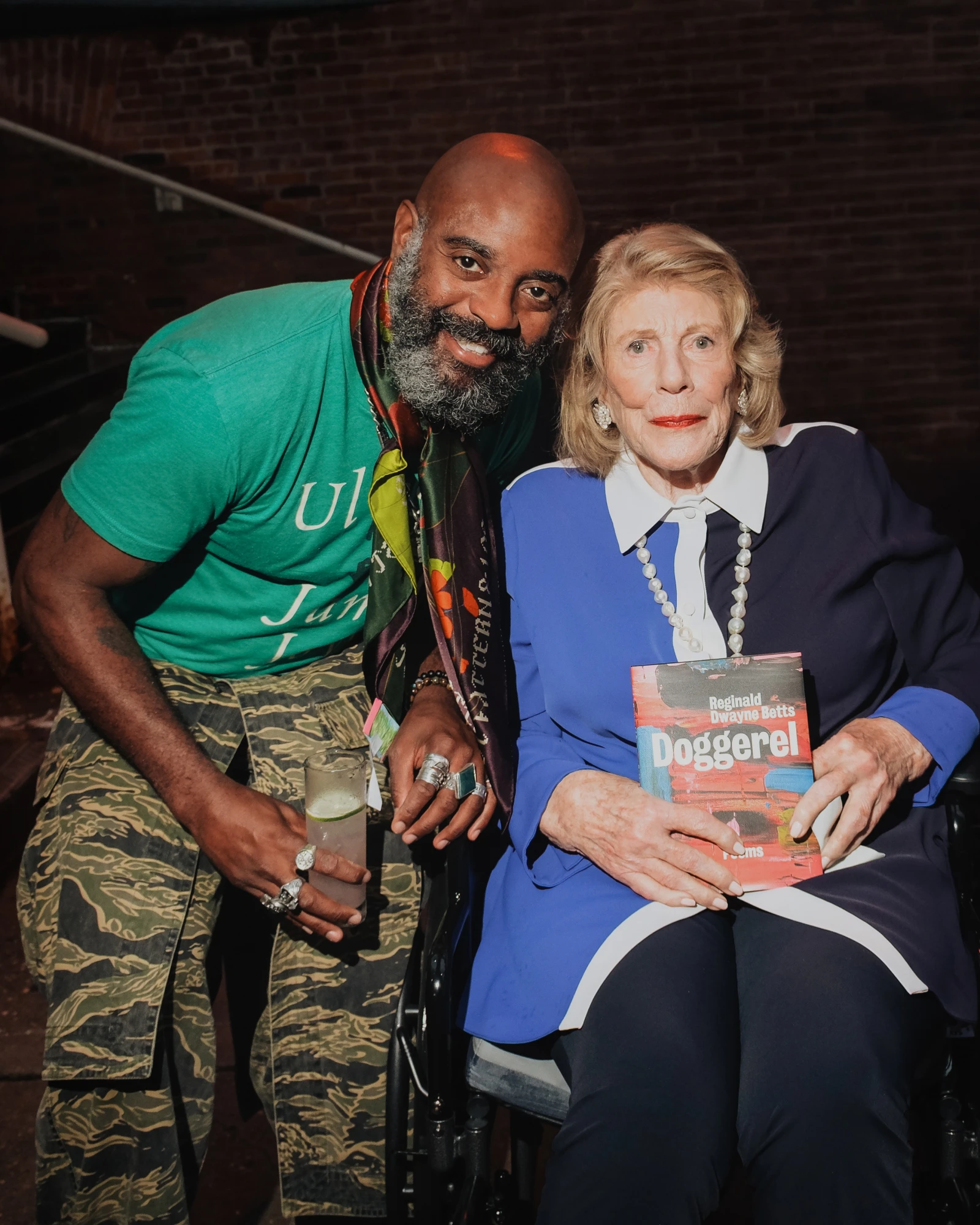Far too many stories I tell about someone else end up becoming stories I tell about someone allowing me to see myself truer. It’s the tragedy of going to prison as a sixteen-year-old, long before I’d had the experiences or sense of knowing who I was. And still, some of the stories become the best ways to remember the people. When I met Aggie Gund, I was running late. I’d been invited by Elizabeth Alexander to meet with Aggie and a group of others about the beginning of Art for Justice.
Walking in the apartment, I found myself looking around for where others might be. I wasn’t completely sure I was in the right place. I saw a William Kentridge charcoal drawing of ravens and crows. Years later, I’d get those birds tattoo’d on the inside of my right arm, and so maybe that image was my first gift. I’d known little of Aggie’s life. Had no idea of her years as head of the Museum of Modern Art, knew little of her life as an art collector, didn’t know that she’d sold a Lichtenstein’s Masterpiece and used $100 million dollars from the sale to fund artists aiming to achieve long needed justice in this world.
I was collaborating with my friend Titus Kaphar on what would become the Redaction Project. I was asked to talk about the intersection between art & advocacy. As would become Aggie’s pattern, she had me sit next to her at the head of the largest table I’d seen in my life. And I started talking. Fifteen, twenty minutes straight. When I finished, Aggie said, “Dwayne, you talk really fast.” And I laughed.
Someone tells you the truth about yourself and if you laugh, you know they are more generous, maybe, than you deserve in that moment. In the years that followed, I’d run into Aggie every so often. And two instances stand out for me. One was a dinner party. Again I was sitting next to her. There, at the table setting, was a gift wrapped book for all who’d been invited. Mine was Edmund De Waal’s Letters to Camondo. All these years later, I only realize the cover is of a man holding a dog. Fitting for me, given that in a lot of ways getting a dog during the pandemic and making friends with dogs saved my life. Fitting too, as the book gave me my favorite word, petrichor, the smell of the earth after the rain.

The last time I saw Aggie was at the MoMA Gala at PS1. I had brought a copy of Doggerel. I’d only come because I was her guest. Still, when I saw her, and all of her friends were taking turns talking and greeting her, I felt conspicuous. Still, I approached. She opened Doggerel and starting reading the book right then. (After she told me the cover art was beautiful!) Nobody starts reading poetry in a room filled with people who want to speak with them. At the dinner table, Aggie and I talked in whispers as if no one else was around. I told her how sometimes it hurt me to leave home, being a single father these days, and the leaving often requiring me to leave my sons to fend for themselves. She told me of her own early parenting days, and for minutes we talked as if we were the only two people in the room.
That night, I likely talked fast as well. Wanting to get it all in. That night, she likely asked me to slow down, as I leaned close to her and shouted whispers. That night, as usual, she made me feel like I belonged in a moment that I might not have – not by pandering, not by listening when she didn’t care, but by carving out space, even in a crowded room, to hear the racing voice that accompanied my racing mind.
A little bit ago, I reached out to Aggie and asked if she’d be an Executive Producer on March Forth, a documentary film that I’ve been creating with Robe Imbriano and Valerie Hong about my life and our work at Freedom Reads. She agreed and I’m reminded that one of the treasures we can give another is to help them tell their story. Sometimes you do that by just listening, sometimes you do it by adding your name to a story that matters.
These days, I am one that weeps often, so it wasn’t a surprise to find tears in my eyes when I learned she’d passed. Still, it’s surprising to find myself crying still, days later. She was a cool lady is really the only point of all this. One of the best of us. And writing it reminds me, actually, that telling the stories isn’t just how we avoid forgetting, but how we ensure that none of us ever disappears.
Reginald Dwayne Betts
Freedom Reads Founder & CEO